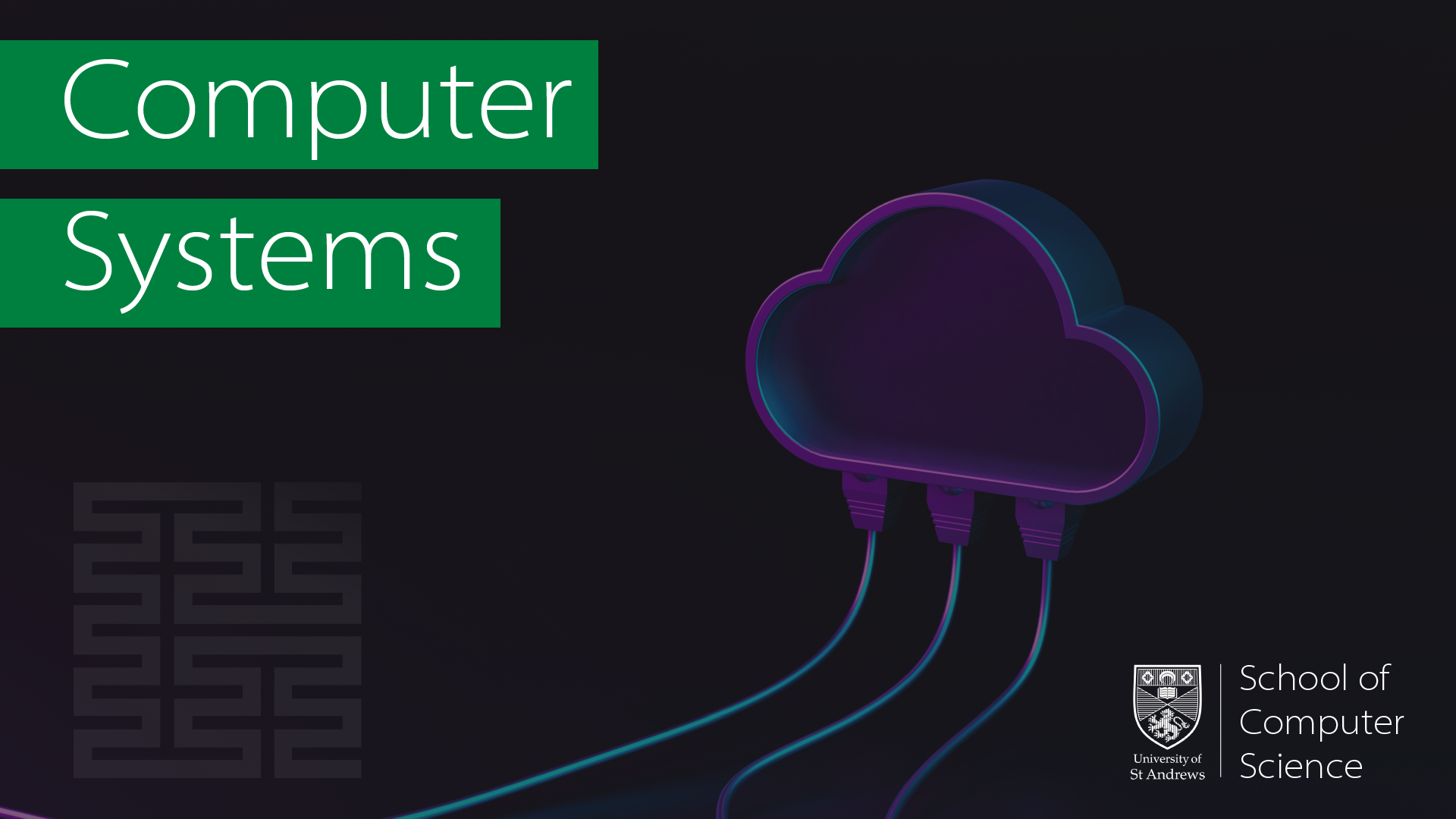Computer Systems
What we do
The System Research group is a interdisciplinary research group that covers the broad areas of distributed systems, networked systems, sensor systems and data-intensive systems.
Members of the group have expertise in research areas spanning: data centres, cloud computing, many-core systems, networking, middleware, sensor networking, machine learning, Internet of Things (IoT), autonomic computing and software architectures.
Theme Lead

Rosa Filgueira

Application Areas
- Internet of Things (IoT)
- Smart Services
- Autonomous vehicles
- Computational epidemiology
- Security
- Secure Communication Applications
- Climate change
- Social Geography
- Modern History
- Digital Humanities
- Privacy
- Genetic Influences on Disease
- Telecom Systems
Research Topics
- Edge/Cloud Computing
- Distributed Systems
- Data Science Applications
- Data Linkage
- Network Science
- Internet Architecture
- Gaze estimation
- Human activity recognition
- Software architecture
- Uncertainty in Software Systems
- Machine Learning for Systems
- Complex systems
- Network Protocols
Our Featured Projects this Year
-
Immersive exploration of Climate Futures
Climate change poses an existential threat to much of what we treasure and indeed to life on our planet. there is no planet B. In this exhibit we use game technology to explore potential climate futures. Based on scientific data and forecasts the exhibit will represent what climate change will mean at the Ant-Arctic, Western…
-
Privacy on the Web: Analysing the Public Suffix List
Web browsers, and other applications, need to be able to determine when two domain names are related to each other, and when they are not. This helps them to make decisions about how data, like cookies, should be shared. The way that applications figure this out is by using the Public Suffix List, a community-maintained…
-
Online On-the-Go: Mobile Internet Connectivity with ILNP in FreeBSD
The Internet wasn’t designed for mobile devices — moving around breaks things! Fortunately, we can hide this behind layers and layers of patched together solutions. Unfortunately, these solutions face performance costs. We show there is another way: by evolving the internals of the operating system, we can provide mobile connectivity for everyone without changing existing…
-
Who Weaves the Web?
The success of the Web is underpinned by a series of documents that define how computers should talk to each other. The process of writing those documents is an inherently social and political process, requiring consensus amongst individuals and organisations that often have competing goals and interests. Our work has begun to untangle the social…
-
Mini Machines, Mega Brains
Artificial neural networks are computer science-based representations of the biological brain. These networks can usually only be run on huge supercomputers with millions of processors that consume a lot of electricity. We are developing new ways to fit brain representations on very small processors so that smart applications are available everywhere – in our homes,…